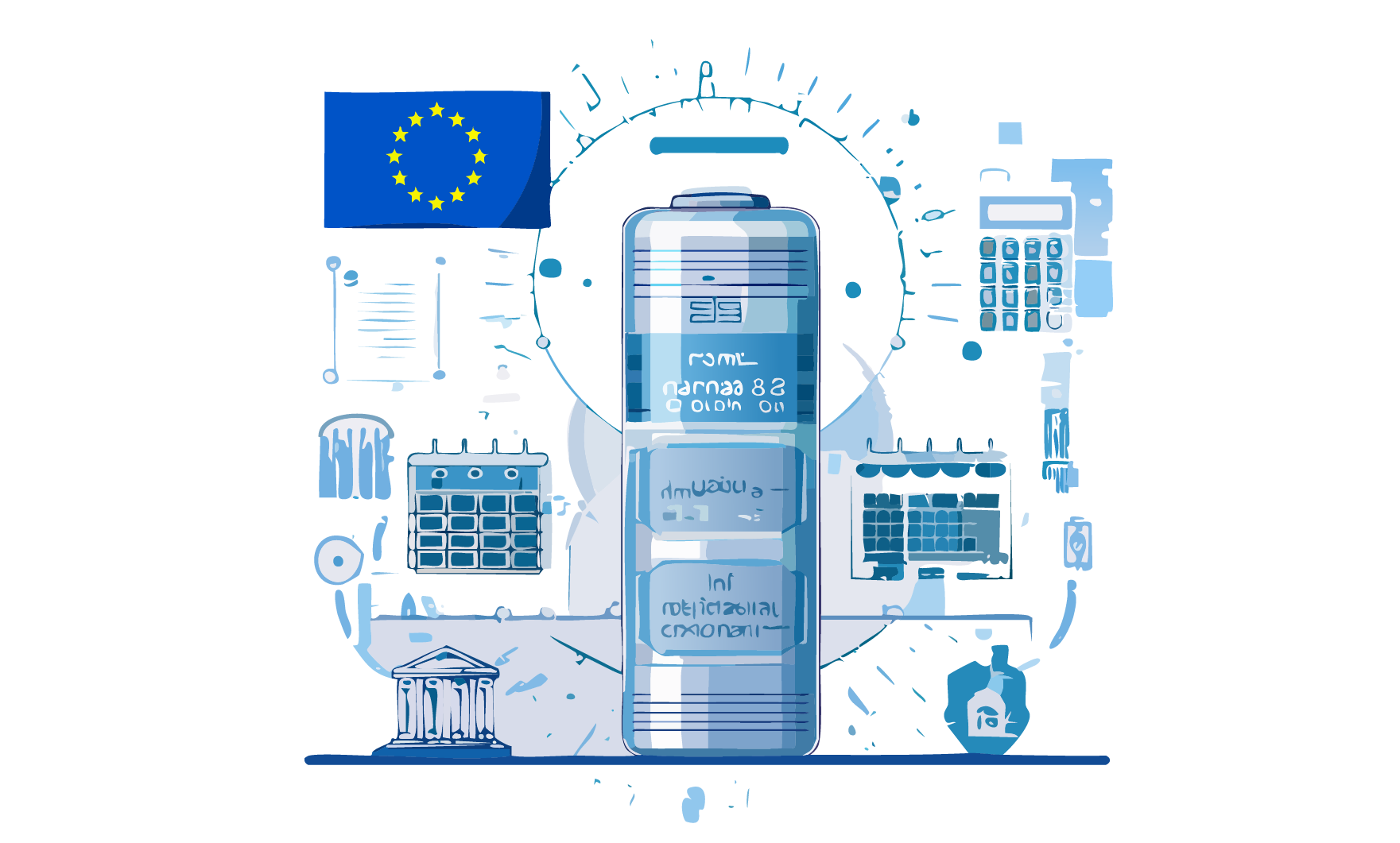EU Battery Passport
FRDM empowers manufacturers, importers, and supply chain partners to meet these complex requirements and turn compliance into a competitive advantage.
Understanding the Directive
In force since August 2023, the EU Battery Regulation (Regulation (EU) 2023/1542) is the first global framework regulating the entire lifecycle of batteries—from raw material sourcing to end-of-life recovery.It mandates that batteries placed on the
EU market must:
- Meet carbon footprint transparency standards
- Comply with strict supply chain due diligence requirements (Articles 49–52)
- Include digital product passports (DPPs) by February 18, 2027 for:
- Electric vehicle (EV) batteries
- Light means of transport (LMT) batteries
- Industrial batteries with capacity >2 kWh
- Electric vehicle (EV) batteries


What Is a Battery Passport?
A battery passport is a digital record that stores lifecycle data about a battery’s:
- Composition and raw materials
- Carbon footprint
- Performance and durability
- Circularity and end-of-life processes
- Supply chain due diligence
It supports the EU’s twin transition to a circular and digital economy and applies to:
- EV batteries
- Light means of transport (e-bikes, scooters)
- Industrial batteries over 2 kWh
How FRDM Helps You Build a Battery Passport

Map Complex Supply Chains
FRDM’s knowledge graph technology connects thousands of suppliers and raw material sources to help you identify and document battery inputs from mine to module.
Automate Due Diligence & ESG Reporting
FRDM delivers real-time data on:
-Country of origin
-Human rights and environmental risks
-Compliance with Article 49–52 (Due Diligence, Risk Management, Verification)
-Third-party certifications

Track Carbon Footprints at Scale
Meet Battery Passport requirements for lifecycle emissions:
-Manufacturing and distribution (company-specific data)
-Raw material acquisition and recycling (primary or secondary data)
FRDM integrates with your emissions data to streamline reporting.

Enable Circularity and Second Life Tracking
FRDM captures data on:
-Recycled content (e.g. cobalt, lithium, nickel)
-Materials composition
-Reuse, remanufacturing, and dismantling pathways
This supports resource efficiency and helps you manage post-consumer obligations.

Centralize Passport Attributes
Store and update the 80+ required attributes in a secure, accessible, and auditable system. FRDM helps you organize data into the seven official clusters:
-General battery & manufacturer info
-Compliance & certifications
-Carbon footprint
-Supply chain due diligence
-Materials & composition
-Circularity
-Performance & durability
Save Time and Money with FRDM
Building a battery passport program in-house can cost hundreds of thousands annually in staff, software, and data licensing.With FRDM, you get:Instant access to regulatory-aligned templates and passport-ready data structures
Integrated third-party data (risk indices, certifications, emissions) without costly subscriptions
Automated due diligence that saves hundreds of analyst hours per year
No need to build your own tech stack, data pipeline, or supplier engagement framework
Ready for 2027 and Beyond
Better data for informed decisions
Smoother audits and reporting
Increased transparency across your supply chain











